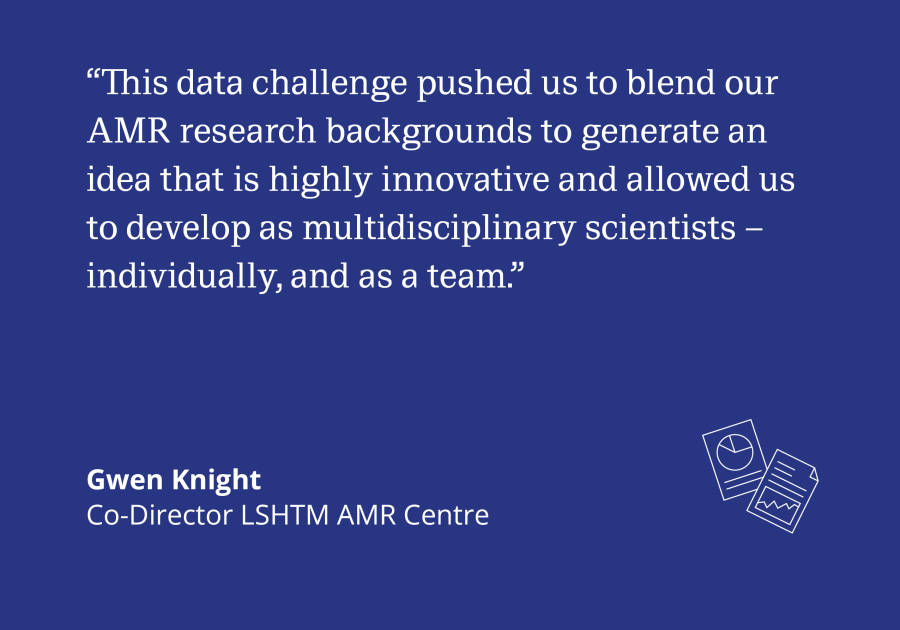
On a daily basis, doctors need to make decisions about what antibiotics to use to treat an infection. They therefore need to know whether an antibiotic will work or not. This decision-making is done based on a classification of bacteria, either as “resistant” or “susceptible”. This resistance classification is determined using the minimum inhibitory concentration (MIC): basically, the lowest level of an antibiotic that can stop a bacteria growing. But by converting to this binary format of resistant or susceptible we actually lose a lot of information, including how resistant an isolate is to an antibiotic.
The hypothesis tested by the LSHTM team during the Wellcome funded AMR Data Challenge was that variation in the distribution of MICs across patient groupings (age, site of infection or sex) could be used to identify similarities and differences that could lead to new insights into the spread of AMR. For example, using multinational data the team found evidence of a trend in some bacteria for old patients to have bacterial infections with greater resistance than younger patients.
The real value of this work could be in its applicability to more localised data sets. In low resource health care settings, which may only have MIC data available, this method could be used to identify subgroups that may require targeted interventions, such as increased vaccination or transmission halting interventions.
The team, all of which are members are part of Gwen Knight’s research group, consisted of MRC London Intercollegiate PhD student, Alastair Clements, Naomi Fuller, a London Interdisciplinary doctoral programmestudent , Naomi Waterlow, a research fellow at LSHTM and Gwen Knight, Associate Professor at LSHTM. The group focuses on the dynamics of AMR, and Dr Knight was keen to emphasise the importance of such prizes to the field:
“This data challenge pushed us to blend our AMR research backgrounds to generate an idea that is highly innovative and allowed us to develop as multidisciplinary scientists – individually, and as a team. I’m excited by the potential of an open-source tool based on this method, that could be used in local settings to exploit the abundance of MIC data.”
A list of the full winners can be found here.
LSHTM's short courses provide opportunities to study specialised topics across a broad range of public and global health fields. From AMR to vaccines, travel medicine to clinical trials, and modelling to malaria, refresh your skills and join one of our short courses today.
